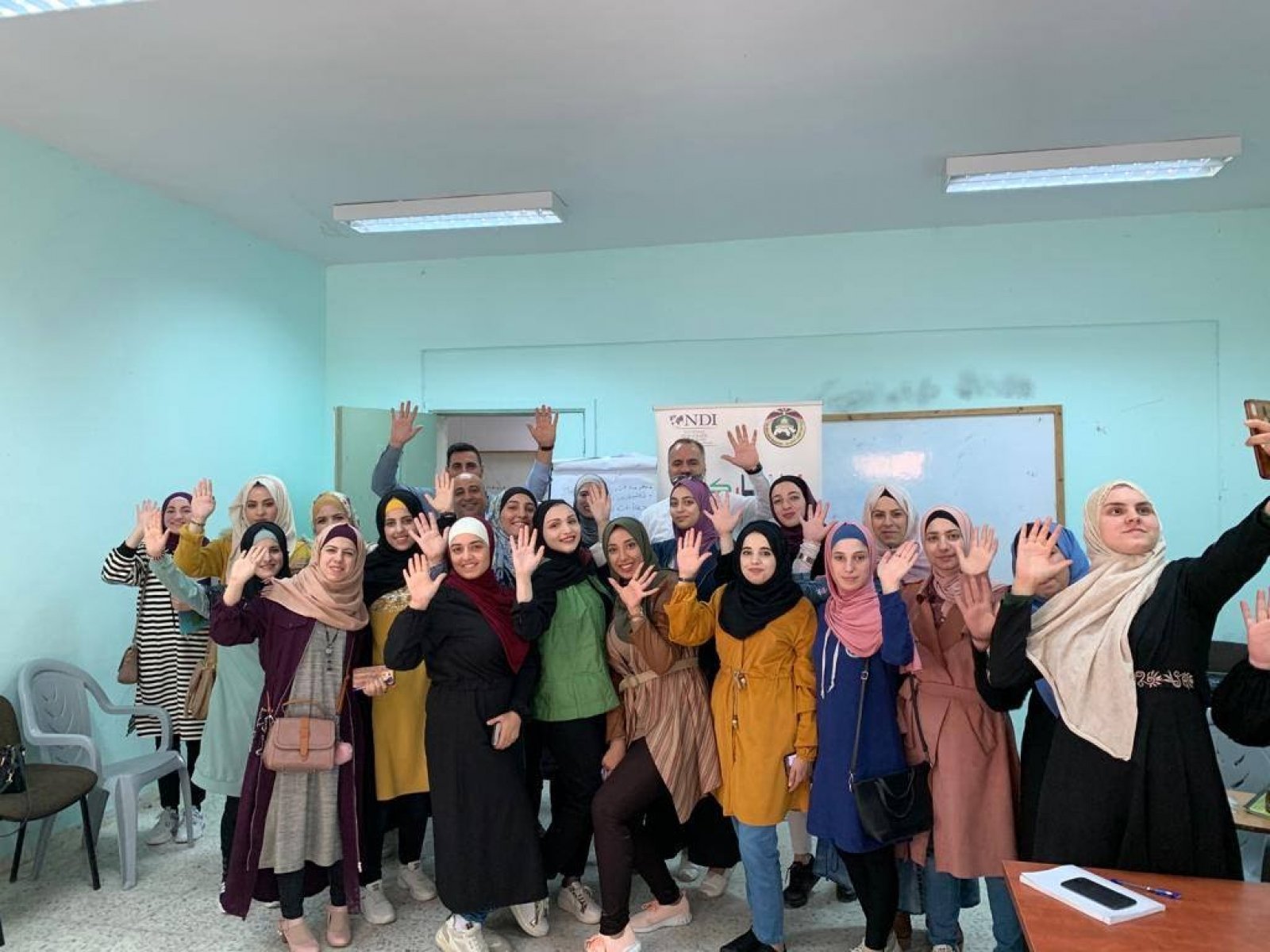
SHARE
Palestinian youth are often associated with the uprisings of the first and second Intifadas and are seldom celebrated as changemakers in their local communities. Today’s young Palestinians are eager to participate in formal political processes and contribute to achieving long-lasting and meaningful changes in their communities. Despite their enthusiasm, youth face severe challenges in finding positive avenues to make their voices heard and communicate their needs to decision-makers.
The COVID-19 pandemic has presented youth with even more challenges as they navigate the West Bank’s ongoing economic crisis and political instability. Comprising more than 30 percent of the population, youth citizens are ready for change during a critical moment in Palestinian politics as national leaders discuss plans to hold the first nationwide elections since 2006.
image.jpg

Ana Usharek:
Since 2018, NDI has implemented its youth political participation program Ana Usharek (“I Participate”) across seven university campuses in the West Bank. Modeled after NDI’s Jordan program, Ana Usharek is a year-long extracurricular university program that provides youth with the knowledge and skills to become active agents of change in their communities. In the West Bank, more than 300 Ana Usharek students have participated in weekly group discussions on democratic concepts and used their skills to meet with decision-makers and promote government transparency. Students have shared how these discussion sessions serve as a safe space to openly debate topics rarely discussed in their communities, such as gender equality and inheritance rights, the delivery of local services and government corruption.
“If it were not for the Ana Usharek program I would not have known my rights as a citizen in Palestine. I was not aware of how I can contact local decision-makers and demand for improved services until now.”
Ana Usharek student from Hebron
Usharek+:
In early 2020, NDI launched the Usharek+ leadership program, equipping top Ana Usharek graduates with the tools to implement local campaigns to address community problems. NDI’s local coordinators train Usharek+ participants on campaign strategies such as network and coalition building, stakeholder identification, data visualization, negotiation and communication skills, digital storytelling and social media outreach strategies.
123359829_711151176502329_8769124280724034511_n.jpg

“Yallah Ensharek!” Campaign:
While NDI successfully adapted to the new realities of the pandemic, universities in the West Bank struggled to swiftly transition to remote curriculums. Usharek+ students viewed this challenge as an opportunity to design and implement a nationwide online campaign, “Yallah Ensharek!” or “Let’s Participate!” The online campaign calls on national stakeholders to enhance e-learning services across the West Bank. Usharek+ students applied their newly acquired skills to conduct citizen surveys and community research, implement social media outreach activities and communicate student needs to local and national stakeholders.
“The Usharek+ program has equipped me with the self-confidence I need to become a leader in my society. Our campaign has proved to me that youth do have a voice in Palestine.”
Usharek+ student from Abudis.
In September, these efforts culminated in a student-led online forum on “E-learning in Palestine: Realities and Challenges,” which provided university students with the opportunity to voice their concerns to decision-makers and participate in forming policy solutions. Ahead of the forum, Usharek+ participants conducted a social media outreach campaign and published a press release across several media outlets, promoting the online event across the West Bank. Students also invited stakeholders and researchers to participate in discussion panels. During the forum, Palestinian youth formed a coalition with professors and deans, national and regional government officials and internet companies to address e-learning challenges in the West Bank and incorporate university students into policymaking decisions during the COVID-19 pandemic and beyond.
B.png

Although students completed the Usharek+ program, they are continuing to implement “Yallah Ensharek!” by remaining active on the campaign’s Facebook page and following up with policymakers to implement the coalition’s recommendations. Through the Ana Usharek and Usharek+ programs, Palestinian youth demonstrate a strong potential for reaching leadership positions when given the right opportunities.
Ana Usharek” and its related programs are implemented with support from the National Endowment for Democracy (NED)
Author: Mirvat Salameh is a Senior Program Assistant with the MENA team at NDI.


